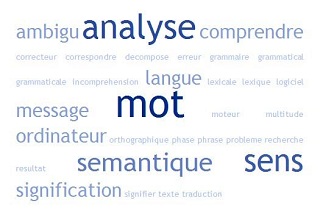Semantic Google search warms the minds of SEOs. By stating in the Wall Street Journal that in the medium term 20% of search results should be impacted by semantic search, a senior Google official panicked web publishers.
As a reminder, semantic search is simply the ability of a search engine to understand what a page is about, or what an Internet user is looking for, and to directly provide a relevant response to the queries sent to him or her. For example, in the near future, when you type "Score nadal federer Roland Garros 2008" on Google, you should see directly "6-1, 6-3, 6-0" without even having to visit a site... score that Google will have retrieved itself on the corresponding Wikipedia page, or on the Roland Garros portal, or more likely by cross-referencing several sources of information to ensure the accuracy of the answer. It is not for now, but still ...
Google has been experimenting with this approach for a few years now on very specific themes. For example, when you type 5*4 in the search engine, it returns the result of the operation. Or when you type "meteo rennes" it displays the weather forecast instead of sending you back to meteofrance.fr.
This news has not necessarily been well received in the SEO and site editor community. Indeed, if this innovation is going to simplify the life of Internet users, it is not necessarily a step forward for website publishers who will provide information to Google but will not get any traffic from it!
But let's not forget that Google is still and always a robot that gobbles up, analyzes and restores the information we want to provide it with.
What if the Semantic Web was an opportunity for SEO?
More generally, we are witnessing on the web the progressive birth of the semantic web. The objective of the semantic web is to organize the web by giving meaning to each content.
Several semantic markup formats exist, although Google, Yahoo and Bing have agreed to recommend "micro-data".
By using micro-data in their web pages, site editors thus enable search engines - or any other service - to extract semantic data related to their content (company name, telephone, address, product name, brand etc.).
All the data interpretable, for the moment, by google is available here :http://support.google.com
Google currently reads the micro-data on the websites and uses it (among other things) to display additional information in its "rich snippets". If you don't know it, the rich snippets are the additional information that appears under certain Google results (address, map, notice, note, rates etc...).
Let us take an example. On an online hotel booking portal, the record of an establishment may contain the following tags: price, address, rating given by Internet users and notices. When a search engine, or more broadly a robot, analyses this page to index it, it will immediately understand that "55 euros" is the room price, that "3 chemin des lanternes, 76000 Rouen" is the address of the hotel, and that "4.5/5" is the rating given to this hotel by Internet users.
Now let's take a look at how Google uses this information in its rich snippets: by typing "lighthouse hotel" on Google, in addition to the "official" hotel site, two online booking sites stand out among the top 10 natural results. By using micro-data to qualify certain information such as price or consumer reviews, it is clear that these two sites benefit from increased visibility on the first page? Regardless of their ranking, they will probably for this reason have a much higher click rate than all the other sites present on the same result page. By using these formatting tags, you can now easily add a note to your web page and highlight it in the search results listing. More and more online sales sites are now using these ratings to stand out from the crowd and increase their visibility at a lower cost.
Generally speaking, the semantic web is rather an opportunity for webmasters to qualify their data. In the coming years, this type of formatting will certainly be one of the preferred criteria of Google and search engines to judge the relevance of a content.
As the "keyword" tag in its time, it is likely that there will be a way to play on this data to gain relevance with Google. We just have to hope that the latter will not abuse its dominant position to display increasingly rich search results and keep users on its site... (Source: Le Journal du Net - April 10, 2012)
{Jacuzzi on}












